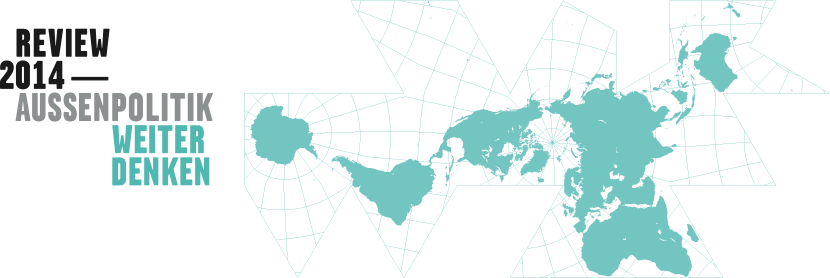In order to reevaluate its foreign policy approach, Germany conducted a review (“Review 2014”) last year. Review 2014 included multiple town hall meetings with German voters and debates among foreign policy experts around the world. Even during Review 2014, voters’ and experts’ opinions and approaches changed. Initially, the majority of German voters disagreed with the statement “Germany should be more engaged internationally.” This position changed, however, as 2014 progressed.
When looking back at 2014, and the world events contained therein, it is no wonder Review 2014 transformed. The Ebola crisis in Africa; Ukraine, Russia, and Crimea dispute; continued fighting between Israel and Hamas; the rise of ISIS; and the revival of the Euro crisis when Greece rebelled against austerity just to name of few, the Western powers were spread thin. Germany, as France was preoccupied in Africa, the United States involved in the Middle East, and the United Kingdom taking, what some would say, a negligible stance on foreign policy, left Germany to attend to the crises occurring in Europe: Ukraine, Russia, and Crimea and the Euro and Greece.
Chancellor Angela Merkel showed her stamina in diplomacy when working to resolve these disputes. Chancellor Merkel takes the approach that it is always better to keep talking than to fuel conflict. Germany’s history essentially forces Germany to take this approach, however. World War II and the politics surround the Berlin Wall are still too fresh to ignore. Any fueling of the fire or unilateral action by Germany, automatically brings back feelings of a not so distant past. Regardless of why Germany and Chancellor Merkel takes this approach, their persistent diplomacy and “ethical” methodology sits well with German citizens.
As a result of these events and Germany’s responses, Review 2014 led to the following goals:
- The Federal Foreign Office must change as the world changes
- Mobilize resources and increase strategic capacity
- Merge the directorates-general for disarmament and the United Nations
- Make foreign policy an open discussion with the public a permanent feature
- Implementation of goals within 18 months
These goals were posted online where Review 2014 encourages visitors to continue the conversation as Germany’s foreign policy evolves.
Review 2014 has evolved into a social platform to discuss and change Germany’s foreign policy approach. Should other countries use a similar review process to address foreign policy or is this process unique to Germany? Engaging citizens is never a bad idea and it would not be surprising to learn that the majority of Western citizens likely agree with the statement “speak softly and carry a big stick,” putting diplomacy before fueling a conflict. However, other Western countries do not need to tread as lightly when making changes to foreign policy because they do not have the same recent tainted past. Opening up discussions regarding politics to citizens using a social platform appears to be a unique way to communicate with voters, but let’s withhold any firm judgment for 18 months to see what Germany does with the goals from Review 2014.


